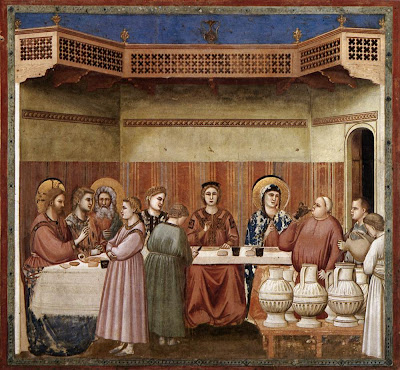 And Saul, as yet breathing out threatenings and slaughter against the disciples of the Lord, went to the high priest,
And Saul, as yet breathing out threatenings and slaughter against the disciples of the Lord, went to the high priest,2 And asked of him letters to Damascus, to the synagogues: that if he found any men and women of this way, he might bring them bound to Jerusalem.
3 And as he went on his journey, it came to pass that he drew nigh to Damascus; and suddenly a light from heaven shined round about him.
4 And falling on the ground, he heard a voice saying to him: Saul, Saul, why persecutest thou me?
5 Who said: Who art thou, Lord? And he: I am Jesus whom thou persecutest. It is hard for thee to kick against the goad.
7 And the Lord said to him: Arise, and go into the city, and there it shall be told thee what thou must do. Now the men who went in company with him, stood amazed, hearing indeed a voice, but seeing no man.
8 And Saul arose from the ground; and when his eyes were opened, he saw nothing. But they leading him by the hands, brought him to Damascus.
9 And he was there three days, without sight, and he did neither eat nor drink.
Now there was a certain disciple at Damascus, named Ananias. And the Lord said to him in a vision: Ananias. And he said: Behold I am here, Lord.
11 And the Lord said to him: Arise, and go into the street that is called Straight, and seek in the house of Judas, one named Saul of Tarsus. For behold he prayeth.
12 And he saw a man named Ananias coming in, and putting his hands upon him, that he might receive his sight.
13 But Ananias answered: Lord, I have heard by many of this man, how much evil he hath done to thy saints in Jerusalem.
14 And here he hath authority from the chief priests to bind all that invoke thy name.
15 And the Lord said to him: Go thy way; for this man is to me a vessel of election, to carry my name before the Gentiles, and kings, and the children of Israel.
16 For I will shew him how great things he must suffer for my name's sake.










